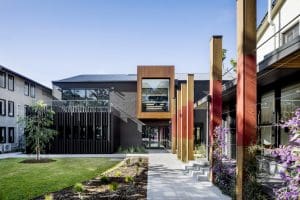Ministry in a Culturally Diverse Context
Overview
It is impossible to minister in Australia without encountering other cultures. The Christian’s primary identity is in Christ, but we each have secondary identities shaping who we are. Whether we are a daughter, a father, Australian, Chinese, Iranian, a student, a city worker, a farmer, or a full-time mum, the question in cross-cultural ministry is, how do issues of identity and culture change the way we do gospel ministry?
When God’s great vision for the future includes redeemed multiculturalism – people from every nation, tribe, people and language gathered before the throne of God and the Lamb – figuring out how to reach people from different cultural backgrounds and how to be Christ’s church in a culturally diverse context is essential.
This subject particularly focuses on questions of ethnicity and identity and gives students the opportunity to do a placement in a cross-cultural ministry context.
It will be of a great benefit whether you plan to serve in an increasingly multi-cultural city like Melbourne, or among people of a different ethnic or socio-economic background overseas.
Please visit the timetable by clicking here for current information on subject availability.
Subject Details
Mode
|
On-campus |
| Workload |
One semester, 12 credit points |
| Status |
Elective |
| Subject code |
EM018 |
| Prerequisites |
48 Credit points of core foundation subjects |
| Teacher |
David Williams |
Content
Section A: Principles
- Culture and ethnicity, unity and division, and individuality and community in the Bible; in particular within the context of New Testament teaching on evangelism and the body of Christ
- Theological perspectives: Trinitarian implications for ministry in a culturally diverse context, theology of such ministry in the context of diversity, church and culture in the New Testament
- Australia: immigration and refugees; ethnic communities; history and directions of government policy
- Models of ministry in a context of cultural diversity; relevant biblical and modern examples, including multi-congregational, mono-ethnic and culturally diverse churches; homogeneous unit and other church growth principles; relational, leadership, learning style, worship preference, language, areas of tension and conflict, and other cultural variables
- An introduction to the concept of cultural distance and its implications for the structure and ministry of a local church; case studies of different models being used by churches seeking to overcome cultural distance
- Strategies and resources for making the transition to a local church model that reflects the demographic realities of the locality; research, design, implementation and evaluation.
Section B: Practice
Students are required to complete a minimum of twenty hours of practical engagement:
- Participate in either a culturally diverse congregation or mono-cultural congregation of a culture other than the student’s own; and
- With the help of members of that church, observe non-church attending people of that culture in their social and family contexts.
Discern the challenges with regard to cultural variables, such as leadership patterns and processes, learning style and worship preference. Consider possible strategies for the future ministry of the congregation.
Study Expectations
In this subject, you can expect to be guided through a variety of weekly learning activities which are designed to develop your understanding of and skills in the themes and passages covered in the syllabus. Students should allow 8-10 hours of study time per week for this intermediate subject including the practical requirements.






